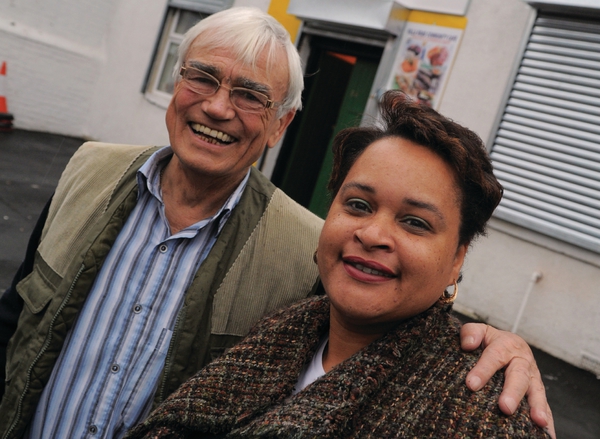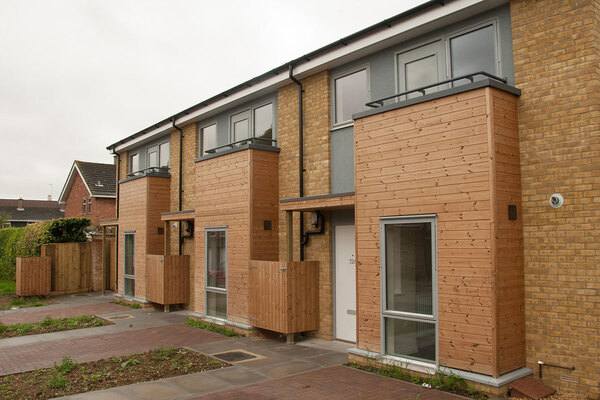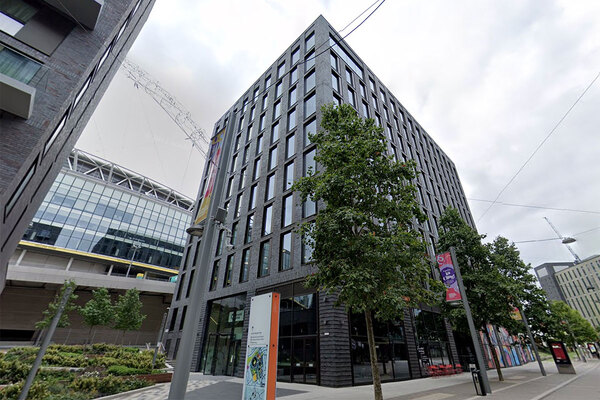The Riot Report
Following the riots that swept through some of England’s major cities in August Inside Housing, the Chartered Institute of Housing and the National Housing Federation launched The Riot Report: How housing providers are building stronger communities.
Numerous reports and media analysis on the riots have highlighted problems in communities relating to opportunities, aspirations, employment, family support and communication. This report, therefore, sets out how housing providers are tackling these issues to build stronger, safer communities across England - and not just in riot-hit areas.
While other inquiries into the riots focus on the causes of the disturbances, we have homed in on the work housing organisations do to improve the lives of communities.
The reasons why up to 15,000 people became involved in the riots are still the subject of much debate. Nonetheless, certain facts stand out about those who were convicted - they were mainly young men aged between 18 and 24, who were out of work and had not done well at school.
In drawing attention to those who rioted, it is, of course, important to stress that many more people in seemingly similar circumstances did not. Their experiences may be just as telling.
Our report shows how social landlords run a variety of activities for individuals and families that might otherwise be out of their reach; opening up opportunities for a cross-section of people. These activities can make a difference to people’s happiness, sense of self-worth and feeling of being connected to others.
There is no doubt that with high unemployment rates, a polarised wage economy and squeezed public services some communities are under pressure. Social landlords recognise this, so they are helping people to develop new skills, or gain work experience to get a job.
None of this is done in isolation - in this report we demonstrate how housing providers are working in partnership with other services to help individuals, families and whole communities to build their resilience in the face of the pressures they face.
In October, we assembled The Riot Report sounding board, 11 people from the fields of housing, teaching, social work, the police, community and youth work, whose expertise gave us a rounded view of why the riots took place and what housing providers can do to support communities.
Some sounding board members stressed the significance of adults, whether parents, school teachers or others in instilling values and holding young people to account. This echoes what young people who did not get involved in the disturbances last August told the independent Riots Communities and Victims Panel.
The sounding board spoke of the difficult family circumstances and the negative peer influences on some of the people they work with. They also stated that too often schools, social services and the police did not seem to make as much of a positive impact as they would like.
All these things created not an excuse, but a toxic mix, whereby some people are neither respectful of others, nor feel respected - and some were too ready to seize an opportunity to vandalise, burn and loot with little thought for the rule of law or the impact they were having on those around them.
The rioters’ actions were not victimless - five people lost their lives during the disturbances. Others were burned out of their homes, or have lost their jobs while local shops remain burned out5. Small businesses are still striving to get back on their feet. No doubt the consequences of the riots are still being felt by these victims, and, indeed, by the rioters themselves, especially those who now have criminal records.
This report - which will be sent to members of parliament and other decision makers - shows how the work of social landlords is already leading the way towards building stronger, safer communities. We want policy makers to listen to housing professionals who understand the wider context of the difficulties some members of their communities face. It’s time to learn from their successes and to ensure the events of last summer never happen again.
Contents
Opportunities and aspirations
How housing providers are helping young people to find new interests and develop new talents
Education, skills and jobs
Social landlords support residents as they build skills, access education and prepare for employment
Family support
Housing organisations’ work to prevent some families reaching crisis point
Communicating with communities
Housing providers’ continual engagement with residents doesn’t stop when times get tough
Opportunities and aspirations
Having a personal stake in society and an area, a sense of belonging, of community respect and acceptance are important in helping to foster community spirit. Individuals with aspirations and a positive attachment to a place, to family and to friends, help build strong and resilient communities.
Members of The Riot Report sounding board, and the individuals and organisations that contributed to our research through social networking site LinkedIn and via email, told us that, conversely, a lack of aspirations, jobs and prospects for young people is a real issue in many areas of Britain.
These views are reinforced by interviews with young people and communities in the Cabinet Office’s August report into the riots, which noted that young people made a distinction between those who have a personal stake in society and a sense of something to lose, and those without.
Following the summer’s disturbances, the British Youth Council polled more than 900 young people aged 25 and under across the UK to find out why they thought the riots had happened.
Fifty-eight per cent said the disturbances were a result of poor parenting. A lack of respecting right and wrong was a reason given by 57 per cent of those who were questioned. The same number believed that a lack of jobs and opportunities was a cause, while 56 per cent cited a lack of respect.
The vast majority of young people who took part in the BYC’s research wanted to be more engaged in their community, with 80 per cent believing support is needed to encourage people to participate more.
Meanwhile, our sounding board members highlighted the positive impact mentors can have by providing young people with more positive, constructive aspirations.
Gangs

In contrast to much initial reaction that gangs were involved in the riots, Home Office research shows just 13 per cent were gang members, and even where they were involved most were not doing it as part of the gang’s activity.
Sounding board member Twilight Bey (pictured right), who leads the youth engagement team at Catalyst Gateway, the charitable arm of Catalyst Housing, makes the important distinction between ‘young people who socialise in groups which are mislabelled as gangs’ and ‘serious group offenders’.
The vast majority of young people are not involved in the latter and the huge majority of neighbourhoods across the UK do not suffer from gangs or gang-related criminality. However, in some pockets of major cities, gang violence is undoubtedly a problem.
Following the riots, the government announced a new strategy to tackle gangs and gang violence. Ending Gang and Youth Violence adopts a multi-agency approach through which social landlords are being encouraged to help tackle gangs and gang crime in their localities, by the creation of 100-strong task force.
Some landlords have effective schemes in place to support young people that want to change their lives and leave gangs behind.
Tackling conflicts and developing talents

What: Pathways to Progess
Where: London
Catalyst Gateway’s programme Pathways to Progress provides tailored support to 12 to 25-year-olds in Kensington and Chelsea, Hammersmith and Fulham, Brent and Westminster. It helps young people find new interests and develop their talents, and was the London winner of the National Housing Federation’s ‘What we are Proud of’ Awards in July 2011.
The project helped more than 600 young people between 2008 and 2010, leading to a 10 per cent reduction in young people’s unsupervised hours (hours not spent in school, in a supervised community activity, or at home with a responsible adult) helping to tackle anti-social behaviour across west London. Pathways to Progress has also developed projects to create community mentors and tackle conflicts between peer groups and serious group offenders (street gangs).
A recent survey suggests 65 per cent of residents said the scheme has had a positive effect on them and their community
A sense of direction

What: Mentoring scheme
Where: Richmond, London
Richmond Housing Partnership staff volunteer as mentors for some of the most challenging young tenants, aged between 14 and 16, on the Butts Farm Estate in Hounslow, one of the most deprived local authority wards in England5. The 1,600-home landlord brought in Pauline Morris, a mediator, and trainer specialising in working with young people experiencing difficulties in their relationships. At a cost of £300 per person, she designed a four-day course to prepare the 23 housing association employees who put themselves forward for their role as a mentor.
Caroline Wilmott, 15, who is being mentored through the programme, says the sessions have given her ‘more sense of direction’.
Young people against gang culture

What: No Postcodes
Where: Birmingham
Bromford Group’s No Postcodes is a campaign supported by 18 to 25-year-olds against gang culture. It culminated in a YouTube video and an event held at Birmingham Central Library in October. The event celebrated young people’s talents, including singing, dancing and drumming. It also brought together services which attendees might find useful, such as those that offer drug awareness and sexual health advice.
No Postcodes got more than £1,000 in funding from the Prince’s Trust, and was built on Bromford Support’s experience of working with gangs through a two-year Gang Diversion project that began in 2008 and provided mentoring support for adult offenders linked to Birmingham gang crime.
The Gang Diversion project was run jointly with West Midlands Police, Birmingham Council, and the city’s Reducing Gang Violence forum. It won a Chartered Institute of Housing west midlands branch good practice award in 2008, within its first six months of operation.
Intensive support for gang members
What: Enough is Enough project
Where: Waltham Forest, north London
Waltham Forest Council launched Enough is Enough, its gang prevention programme which provides a range of interventions and support for gang members and their families, in January 2011. The local authority’s arm’s-length management organisation Ascham Homes, along with housing associations London & Quadrant, CBHA and Circle 33, have been involved in its work with the 27 families identified for the first interventions.
As a result of the programme, many of the young people have begun college or training courses, secured apprenticeships and gained employment. Some parents have also entered training or found jobs.
Offering intensive support through Enough is Enough costs the council £21,000 per family, but it is estimated to have saved the taxpayer £2.3 million in its first six months of operation.
Education, skills and jobs
Having an affordable, suitable home is a necessity for anyone trying to study or wanting to access employment. As well as providing the bricks and mortar, social landlords are helping residents to build skills, access education and prepare for work.
Housing providers are playing an important part in investing in the young people in their communities, sponsoring new academies and providing vocational training opportunities.
Sounding board member Gaynor Duffy, a magistrate and a teacher at the New Charter Housing Trust Group-sponsored New Charter Academy in Ashton-under-Lyne, Greater Manchester, voiced concerns about the need for the education system to instill a sense of ambition in some young people. ‘Some young people have lost a sense of purpose. They’re saying, “what’s the point in education, there’re no jobs out there anyway”,’ she states.
This lack of engagement with the education system is apparent among those who rioted last summer. Just over half of the 10 to 17-year-olds brought before the courts in relation to the disturbances had achieved the expected level of Key Stage 2 attainment in English and Maths assessments, whereas three quarters of pupils achieve this nationally.
More than a third of adults charged were claiming out-of-work benefits, compared with 12 per cent of the working age population in England.
Twilight Bey, a sounding board member who leads the youth engagement team at Catalyst Gateway, the charitable arm of Catalyst Housing, believes that, ‘schools are incapable of teaching the understanding required to allow learners to navigate or create pathways to exit the legacies some communities experience as a result of of poor socio-economic conditions’.
‘Community-based education programmes have the potential to address this gap,’ he says.
Unemployment
Living in social rented housing is not a barrier to work, in fact many tenants report that it brings them closer to the labour market.
Landlords support their tenants to get jobs, helping them to overcome any disadvantages which might weaken their employment prospects.
Research by the Joseph Rowntree Foundation has shown that schemes addressing work in isolation are less effective than interventions which address housing, health, childcare and substance use issues as well as employment. Many initiatives run by landlords emphasise the importance of working with other established organisations such as Job Centre Plus and employment providers.
Apprenticeships
Apprenticeship schemes have received support from both the present and previous governments, and apprenticeship starts have been increasing steadily since 2005/064. Many housing associations already provide apprenticeship opportunities to their tenants.
One thing leads to another

What:Youth Academy
Where: London and Essex
Family Mosaic set up a Youth Academy with funding of £160,000 a year from its Community Foundation Trust.
Through the academy it aims to provide training, education and employment opportunities to tenants, including access to apprenticeships and bursaries for further education. The academy has supported hundreds of young people, and runs summer projects and a football academy, which help to reduce the risk of anti-social behaviour.
One young person who has gained accredited sports coaching qualifications through the Youth Academy says, ‘It’s a way for me to use my time constructively while making friends and having fun.
‘Ultimately the experience gave me confidence, which led to me gaining a place at South Bank University.’
Reading between the lines

What: Mentoring and Reading Buddy Scheme
Where: Coventry
Whitefriars Housing, part of WM Housing Group, is supporting 17 staff to teach year eight pupils in a local secondary school about the world of work and employment, and the career paths and qualifications open to them. The mentoring programme aims to raise pupils’ aspirations and provide them with positive role models.
Twelve-year-old Jade Lilley says: ‘I’m interested in working with children with disabilities so I thought I would work in a care home, but my mentor has suggested I could study to become a paediatric nurse or doctor.
‘I didn’t think this would be possible at first, but now I know what qualifications I need and where I could study it is something that I would like to do.’
Whitefriars’ staff have also been helping pupils with low reading ages by dedicating time each week to listen to them read. After four months, pupils’ reading ages increased by an average of 15 months - some improved by as much as three years.
Apprentices sign the dotted line

What: HUB Supported Apprenticeship programme
Where: Sunderland
The HUB Supported Apprenticeship Programme was developed in June 2009 by housing association Gentoo, Connexions, Sunderland Council and learning provider Springboard.
Gentoo recruited 10 ‘supported’ apprentices all of whom were children of Gentoo customers. The programme targets young people who are not in education, employment or training, and do not have the skills, experience or qualifications to progress to a more mainstream apprenticeship.
Through the HUB programme, each young person undertakes a 46-week apprenticeship, which includes employability and key skills training and intensive mentoring support. The apprentices also work towards a Level 2 National Vocational Certificate.
The overall cost of the support provided to the apprentices - nine of whom progressed to a trainee post, a permanent post or university - was £96,620.
The success of the programme has led to new funding streams for Gentoo and other the partners involved. Sunderland Council was awarded £1.34 million from the Skills Funding Agency to deliver a new NEET programme based on the HUB model.
The perfect partnership

What: Real Opportunities
Where: Wythenshawe, Manchester
Real Opportunities is a partnership between Parkway Green Housing Trust, Manchester Council, Job Centre Plus, the NHS, Manchester College, Greater Manchester Police, and a range of voluntary sector and community organisations to maintain a cohesive system of employment support within the community. The partnership has trained 400 public-facing employees to whom residents can be referred to gain impartial employment support.
It assists residents with skills and training and helps them to break down any other barriers to work, which can be related to transport, health, childcare, debt management or housing.
It also hosts ‘get hired’ events, which promote the support on offer to residents. Within eight weeks of an event in September 2011, 200 of those who attended had already started work, and a further 75 had had their first advice session.
Family support
In November 2011, the independent Riots Victims and Communities Panel’s interim report stated: ‘We were frequently told by communities that poor parenting was an underlying cause of the riots.’
Sounding board member Derekston James, campaigns manager for the national UK Youth Parliament, has an interesting perspective. ‘Some parents [of rioters] will believe they are good parents, but the environment they live in does not allow them to reach the full potential of their parenting ability. So in the eyes of society they failed.’
In September, the government announced a trial to offer parenting classes to all parents of children under five. The trial, which is due to begin in spring, is part of plans to increase support for parents, help them communicate better with their children and prevent problems from developing later on. It is hoped that it will reduce the stigma attached to asking for information and advice on parenting.
Some members of our sounding board felt that some traditional social work approaches to family support can fail to engage in a meaningful way with families with deep-seated problems.
‘Social workers do have tools and approaches which could help families who are struggling, but are often constrained by lack of resources and bureaucratic procedures,’ explains Ruth Cartwright, manager of the British Association of Social Workers, England.
As a result, the sounding board felt some families had viewed support services as something to fear and avoid rather than as a resource to help them. They felt that an emphasis on community-based activities, and support for all parents, could help address this. They also recognised that targeted interventions could help prevent some families from reaching a crisis point, or in other cases help turn around entrenched problems.
Housing providers are often closer to communities than other service providers, meaning they are well placed to work with families.
Often they work in partnership with local authorities, and community and voluntary organisations, to achieve positive results for individual households, as well as whole neighbourhoods - these multi-agency projects can lead to a reduction in anti-social behaviour, for example.
A range of organisations, including housing associations and local authorities deliver parenting programmes. Some established parenting programmes, such as Triple P, Incredible Years and Strengthening Families Strengthening Communities have been shown to improve parent and child outcomes.
Such evidence-based initiatives share similar methods of delivery such as weekly meetings, group discussion and role play. Typically, programmes last between two and three months and include continuing support through monthly ‘booster’ sessions.
A recent review, which assessed the effectiveness of these schemes considered cases involving 6,143 parents across 43 local authorities. It found that after completing a programme around three quarters of parents reported their parenting style had improved.
Family Intervention Projects
There are also successful projects which aim to tackle problems even once they have become entrenched. Family Intervention Projects, aim to address the multiple problems faced by some families, including those related to crime and ASB.
FIPs have been frequently mentioned by the government since the riots in relation to its aim of turning around the lives of the 120,000 most troubled families, and the recently announced national network of troubled family ‘trouble-shooters’ seems to draw heavily on this model.
These intensive intervention projects have a high success rate, with the most recent figures showing that 70 per cent of families exiting a family intervention project had left for a successful reason such as a reduction in anti-social behaviour, achieving support plan goals and the lifting of formal sanctions.
There are also huge cost savings associated with FIPs as they often prevent situations escalating, preventing families from being evicted and children being taken into care.
The success of FIPs show that even entrenched problems can be tackled.
Support for teenage parents

What: Gaining a Place
Where: East midlands
East Midlands Housing Association’s GAP programme provides teenage parents with safe and secure flats. One of its key successes is a scheme which focuses on the involvement of teenage dads in the care of their children.
The project, which costs around £185,000 per year to run, provides accommodation and ongoing support to the young fathers, helping them get back on their feet after becoming parents. Within the first nine months of the scheme, 10 families had moved on into their own independent tenancies.
In the future EMHA aims to train young fathers to become peer mentors who will attend schools to talk to other young men about the reality of being a father.
A complete turnaround
What: Family Intervention Project
Where: Stafford
In 2010, Stafford and Rural Homes set up a Family Intervention Project at a cost of £45,000 for the first year. One key worker supports up to six families at a time providing intensive support, helping both adults and children improve their confidence and self-esteem and in some cases address underlying problems of substance misuse.
Thanks to the FIP there were no anti-social behaviour-related evictions from Stafford and Rural Homes’ properties in 2010/11 and there has been an overall reduction in ASB, benefiting the wider community. Children have also been taken off the Child Protection Register and are no longer at risk of being taken into care.
One 15-year-old boy showed a complete turnaround in his attitude following the support offered by the FIP. Prior to starting the intervention he had been arrested several times and been the subject of more than 26 complaints to the police in a six-month period.
Cost savings associated with the FIP were assessed using the Family Savings Calculator, which quantifies the preventative savings for society based on individuals’ previous behaviour and the reduction in risk following the intervention. It estimated that the criminal justice system and organisations including social services saved around £420,000 for the first six families to be helped by Stafford and Rural Homes’ FIP.
Communicating with communities
Communities with a strong sense of belonging, networks and local ties tend to be more resilient and capable of withstanding change and displaying strength in the face of adversity.
The Riots Communities and Victims Panel’s interim report found many people felt that their area would have experienced rioting or worse rioting if it had not been for the actions of local services and hard work from people in the community to provide a coordinated response.
Our Riot Report sounding board members stressed the importance of local organisations building trust through communicating openly with the people they serve. They were concerned that being promised services and facilities, only for them not to be delivered, leads to apathy, anger and resentment in all walks of life.
‘Trust can be broken so quickly,’ says sounding board member Carla Keegans, head of involvement and policy development at the City of London. ‘If we make mistakes as a service provider we have to be honest, and if we can’t do something we have to say why.’
Housing providers have been working for many years to ensure they engage with their tenants, involving them in decisions that affect their lives, homes and neighbourhoods.
Expectations and practices have changed significantly in recent years to encompass co-regulation and enhanced roles for residents in scrutiny and decision making.
Good practice in tenant engagement and involvement recognises several core principles: early communication, giving realistic information, not raising unrealistic expectations, providing solutions as well as asking for opinions, providing feedback on consultation exercises, providing a variety of different mechanisms for involvement and recognition that not all residents or tenants will want to be involved all of the time.
Diversionary activities
It is important not to lose sight of the very positive work that landlords are doing to prevent and tackle nuisance, anti-social behaviour and low level crime in partnership with residents and local agencies.
This includes pre and post-tenancy work, investing in homes and neighbourhoods to ‘design-out’ nuisance and crime, directly providing or supporting a wide range of positive activities for younger people, and making effective use of the tools and powers available to them to address problems that arise.
First at the scene

What: 1st Response Service
Where: Salford
Salix Homes’ 1st Response Service is a comprehensive 24-hour service for monitoring and reporting of anti-social behaviour, emergency repairs and professional witnessing. The service provides CCTV coverage of Salix Homes’ housing stock, estates and the wider area and sees the arm’s-length management organisation working closely with the police to record and report activity that needs attention.
During the riots, 1st Response monitored the emerging situation within an estate managed by Salix Homes and the nearby shopping precinct. Police officers worked alongside the ALMO’s employees within the CCTV control room, enabling an effective, coordinated response. This proved vital in understanding and monitoring the emerging situation. It meant potential areas of trouble were identified, and residents and properties could be kept safe.
On the night the riots reached Salford - Tuesday 9 August - vulnerable customers were kept informed of problems and offered support. The Salix team called one resident who lives in the area where the disturbances broke out every half an hour through the night in order to ensure his safety and wellbeing.
The day after the riots hit the North West city, the ALMO’s staff visited 500 of its most vulnerable customers living in the areas affected.
On the ball

What: Street Box Strikers
Where: Manchester
In the Cheetham Hill and Harpurhey areas of Manchester, where youth nuisance levels have been particularly high. Guinness Northern Counties has developed the Street Box Strikers initiative in partnership with other housing providers, the police, the fire service, Manchester Council and the charity Big Life.
Street Box Strikers is a programme of sporting activities for young people, which promotes positive behaviour and learning new skills.
Last summer, 536 young people took part in the programme. ‘It has been incredibly popular as it brings benefits to the whole community,’ says Claire Davies, a housing officer at Guinness Northern Counties. ‘It gives young people something exciting to get involved with during the long summer holidays as well as a chance to be active in the community.’
The programme also allows the agencies involved to build better relationships within the community, which can contribute to more positive outcomes in their own areas of work. For example, after being called out to a fire, Greater Manchester Fire and Rescue Service received warnings from the police about the presence of a group of hostile and violent youths at the location of the blaze.
One of the firemen who had been involved in Street Box Strikers recognised one of the young people from the programme, and as he had previously established a rapport with him, he was able to talk to him and help diffuse the situation.
Helping kids keep safe

What: Crucial Crew
Where: Tameside, Greater Manchester
Crucial Crew, which has been running for around 15 years, was originally set up by the police, but New Charter Housing Trust took control last year.
The scheme runs for four weeks in October and November every year and is based in a local Territorial Army barracks.
It targets 10 and 11-year-olds, and New Charter works with 74 schools to get children involved. Around 3,000 attend every year.
The scheme was set up to ‘help keep kids safe’ in environments they may find themselves in, for example, witnessing anti-social behaviour, needing to give somebody first aid, or facing the dangers of open water when in the countryside.
Children attending Crucial Crew take part in a series of workshops and interactive sessions which last half a day, and cover ASB, crime, domestic violence, alcohol and drug abuse, countryside safety, first aid, fire safety and recycling.
Each school is charged £50 regardless of how many children they bring to the workshops - a cost that has remained the same for many years.
The money pays for overheads such as venue hire and refreshments.
Feedback from last year’s Crucial Crew shows that children remember the messages they learn, and pass them on to other young people and family members.












